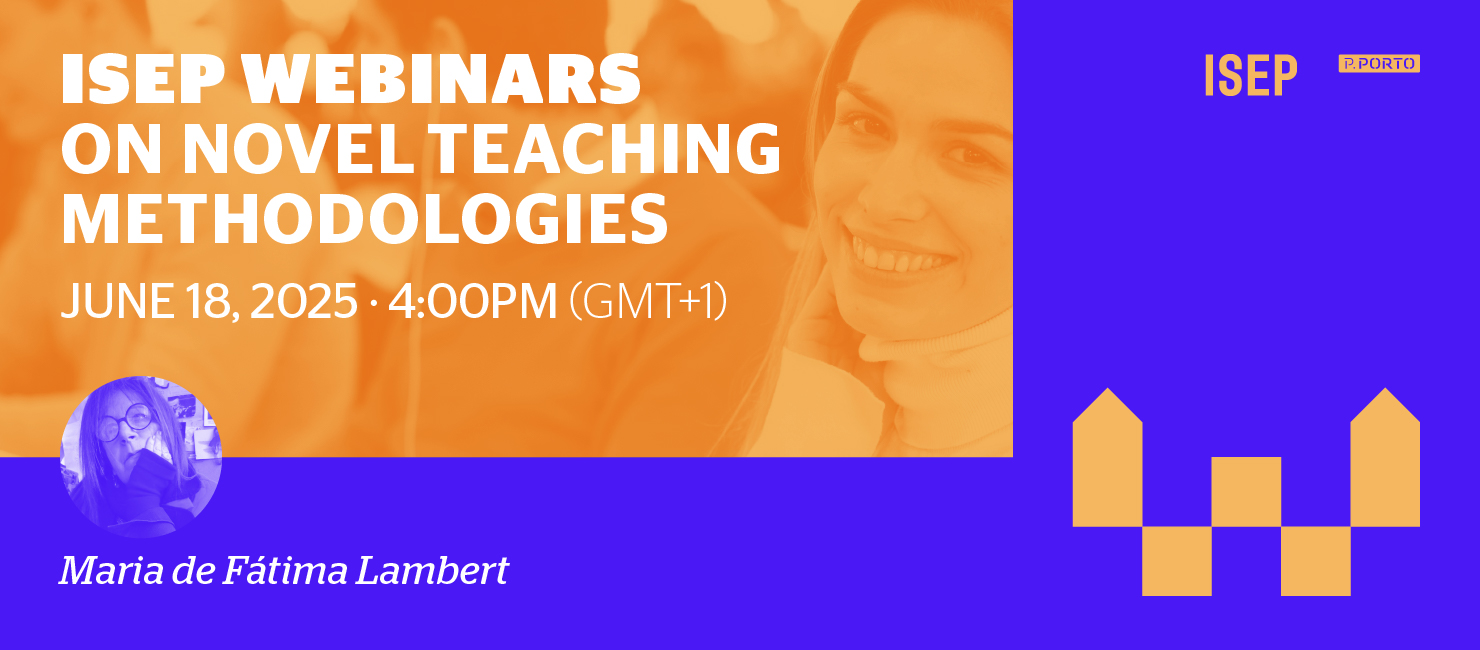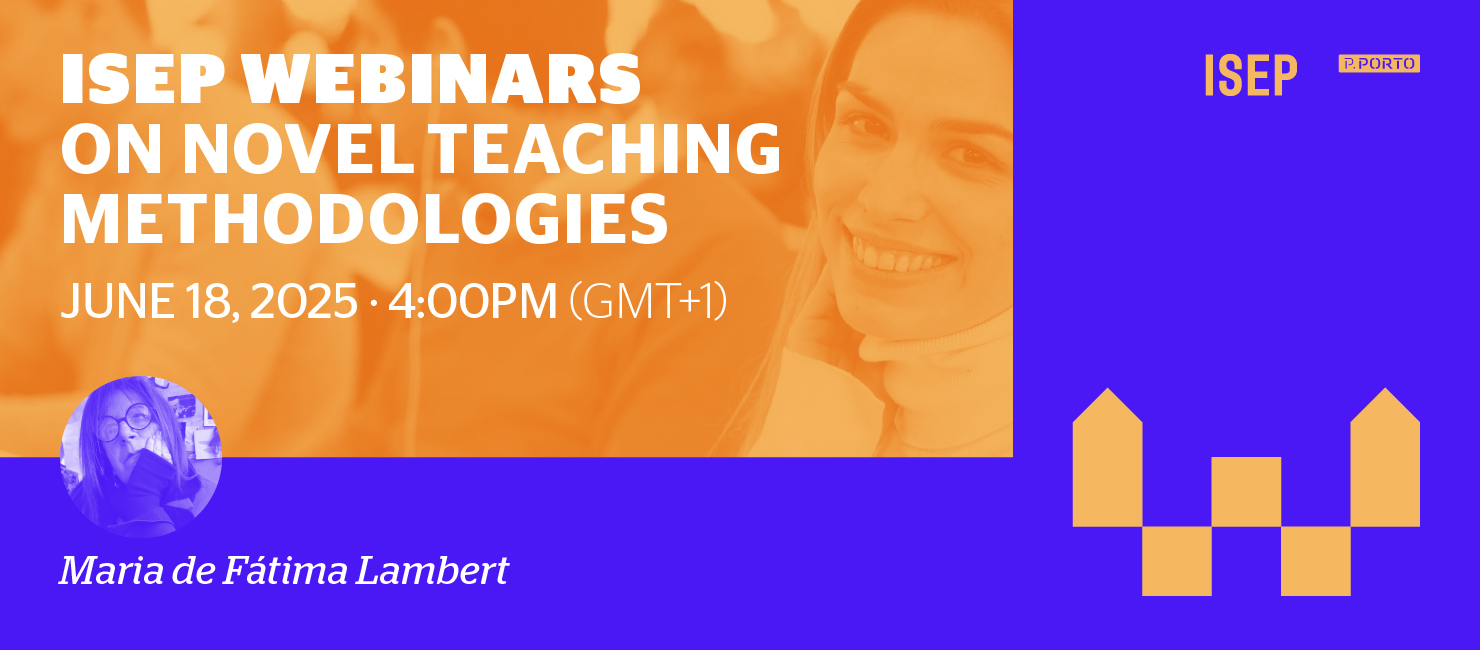
On June 18th, at 4 p.m., a session of ISEP Webinars will take place, organized by Instituto Superior de Engenharia do Porto (ISEP).
This seminar will feature Maria de Fátima Lambert, who will explore the theme “Heritage in AI mode: Museums activating Memory Axes?”.
To access the seminar, please click here.
Abstract
It can be observed, within the framework of theories on culture, that the concerns of those responsible for museum institutions are associated with successively updated objectives. The relationship between the works and the public is relevant, guided by arguments coming from different sectors and theoretical systems. However, access to digital platforms provides greater accessibility to artistic products, thus reconfiguring the notion of “aesthetic possession” on the part of dilettantes and researchers.
- The audience with access to works of art will increase, to paraphrase Walter Benjamin's terminology: "technological and digital reproduction", recasting the question in terms of digital AI platforms.
- The popularization and ease of reproduction of images/works reposition the problem analysed by André Malraux in his Imaginary Museum, currently reaching new meanings. The viewer/reader who generates (on AI platforms) images positions himself/herself at another level of familiarity with aesthetic images, making it possible to manipulate his/her imagination, through the nature and characteristics of the AI’s “reproduction/conversion”.
- What about recognizable (by the public) Cultural Heritage? Sometimes, names and works are forgotten or, perhaps, omitted, erased from Historiographical Studies of Art and Museums. For example: Portugal has a rich history of female writers and painters whose contributions have often been overshadowed by their male counterparts. Can AI help us rebuild an archive of forgotten people?
Bio
Maria de Fátima Lambert has a Bachelor's Degree in Philosophy (1982); Master's Degree in Philosophy/Aesthetics (1986) and Doctorate in Aesthetics/Philosophy - Faculty of Philosophy Braga / Portuguese Catholic University (1998); Post-Doc/FCT Scholarship "Writing and Seing" (2000-2004).
She is Coordinating Professor – Aesthetics and Education - Escola Superior Educação/Politécnico do Porto, having defended public exams, with the presentation of the lesson: "Philosophy and Iconography of the Body" (2000).
At ESE/P. Porto, she coordinates the undergraduate course in Heritage Management and the Master's degree in Heritage, Arts and Cultural Tourism. She has been a member of the board of the Porto Polytechnic Culture Center since 2023.
She is an integrated researcher at the Center for Research and Innovation in Education – InED (FCT) /ESE-P. Porto, of which she was director. Her research focuses on the following thematic lines: Aesthetic Education and Contemporary Art; [In]visibility of women in history - thought, work and action; Travelers & artists: georeferenced poetics and authorial aesthetics – from the 21st century XVII to the century. XX; Landscape, Travel and Utopia; Writing, Image and Performance – intermedia.
She is an art critic (AICA) and independent curator, prioritizing the presentation of Portuguese and Brazilian artists, particularly from the perspectives of decolonial and feminist studies. She is a member of platforms such as ENCATC, ELIA and SEyTA (Spain) and is part of several peer review, editorial and scientific committees.



































